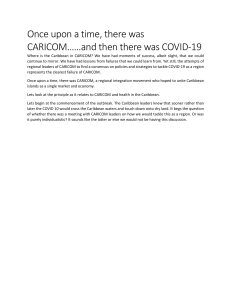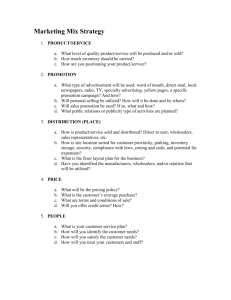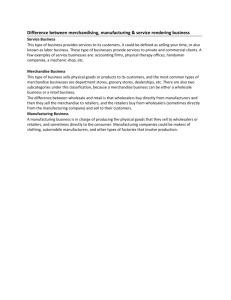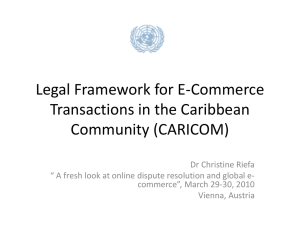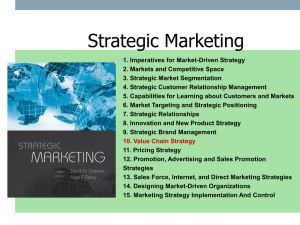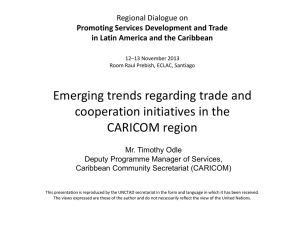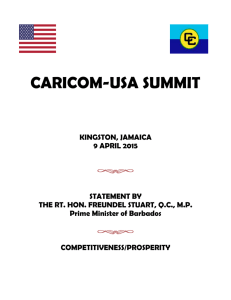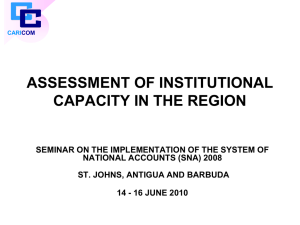Regional Symposium - Distribution Services
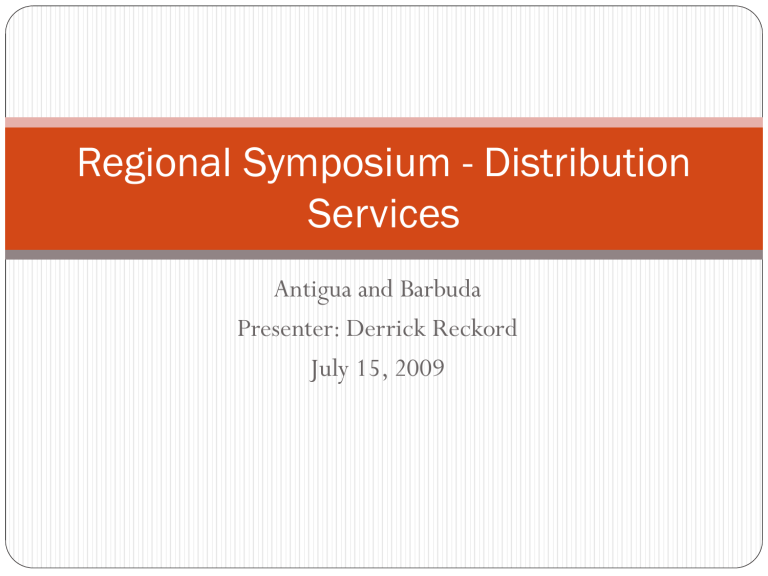
Regional Symposium - Distribution
Services
Antigua and Barbuda
Presenter: Derrick Reckord
July 15, 2009
Overview
Throughout Caricom wholesalers, retailers and commission agents provide an important intermediary service to consumers across the region. These businesses ensure that manufactured goods are distributed to the ultimate consumers when they need it. In many countries in Caricom these entities remain the largest domestic or indigenous businesses with significant spill over in many areas of the local economies of the Caribbean.
Scope of the Sector
Manufactures
Distributor
Wholesalers
COMMISSION AGENTS
BARS
HOTELS
RESTAURANTS
Retailers
Consumers
General Wholesalers
Commission Agents
Declining in frequency as a result of technology
Typical commission agents in Caricom represent manufacturers from Europe and to a lesser extent Asia, USA and South Africa.
Commission agents represent their principals on a permanent basis
Commission Agents will not take title to goods but secure orders for a principal for an agreed commission.
Commission Agents in the Caribbean are mainly involved in the sales of hardware, textiles, pharmaceutical, electronics, transport equipment etc.
Wholesalers
These merchants have in common a business model that involves primarily buying products for resale to other business entities.
Distributors/wholesalers have the ability to buy in bulk and provide a reliable route to market through an extensive network of retailers.
The typical distributor provides the following service to their principal:
Local marketing and brand management.
Warehousing and logistics services in market
Multi channel local sales team.
Management information system.
Prompt payment to principal while financing sales to the trade.
Retailers
Retailers in
Caricom provide the modern day market place for consumers to acquire goods they need. All across
Caricom this sector has seen dramatic growth with the expansion of supermarket style retail format and the modern pharmacies.
The growth of retail chains have shifted the traditional economic power in many countries from distributors to retailers. In this process the trend is consistent with the trends of our neighbours to the North.
In addition to the supermarket format many of our petrol stations (Sol, Shell, Total, and Texaco etc) have converted to a convenient store format.
In Caricom the modified department store format remains active in stores such as Cave
Shepherd in Barbados while regional retail giant
Courts now dominate the furniture and consumer appliance trade.
Role of the sector
Connects the consumer to the producers of goods and services.
Contribution of the Sector
In many countries in Caricom where tourism and construction are the main engine of growth, the distributive trade plays a prominent role in managing the supply chain.
Play an important part in the development of the region in the following areas:
They act as the national distribution hub.
The genesis for most of the significant indigenous capital.
Provide a reliable source of government revenue in value added taxes, consumptions taxes and custom duties.
Significant source of local employment.
Primary supplier to restaurants and small hotels and other service.
Provide an important route to market for many farmers and manufacturers.
Policy Framework
A regional policy framework for the sector should do the following:
Simplify customs entry procedures to make the interaction with
Customs less of a hassle.
Reduce or eliminate prohibitive custom duties
Revise price controls regulations .
Provide the trade with a one stop centre to handle food safety, label regulations and standards and measure etc.
Easier movement of skills across the region to help in management expertise.
Create a regional stock market that allows trade organisations across the
Caribbean to raise capital in the regions.
Minimise sudden dramatic increases in interest charges.
The stability of regional financial institutions and access to cash through these institutions is important to the stability of the trade sector.
